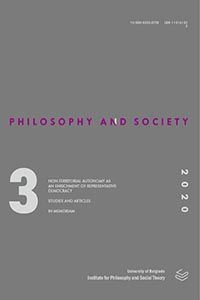Conjuring legitimacy: Shakespeare’s Macbeth as contemporary English politics
Conjuring legitimacy: Shakespeare’s Macbeth as contemporary English politics
Author(s): Edvard ĐorđevićSubject(s): Politics / Political Sciences, Language and Literature Studies, Studies of Literature, Governance
Published by: Institut za filozofiju i društvenu teoriju
Keywords: Macbeth; legitimacy; witches; conjuring; Gunpowder Plot;
Summary/Abstract: The text provides a political reading of Shakespeare’s Macbeth, claiming that the play is responding to the curious connection between witchcraft and state power in the preceding century, as well as contemporary political events. Namely, practices variously labeled as witchcraft, magic, conjuring were an integral aspect of English politics and struggles over royal succession in the sixteenth century; even more so were the witch hunts and attempts by British monarchs to control witchcraft. These issues reached a head with the accession of James VI of Scotland to the English throne in 1603, and the Gunpowder Plot in 1605. On the surface, Shakespeare’s play, written in the immediate aftermath of the failed attempt at regicide, brings these historical and political issues together in an effort to legitimize James’ rule. However, the article shows that a closer look reveals a more complicated, indeed subversive undercurrent at play. Paradoxically, while Macbeth does provide James with legitimacy, at the same time it calls into question the grounds of that legitimacy.
Journal: Filozofija i društvo
- Issue Year: 31/2020
- Issue No: 3
- Page Range: 393-405
- Page Count: 13
- Language: English

